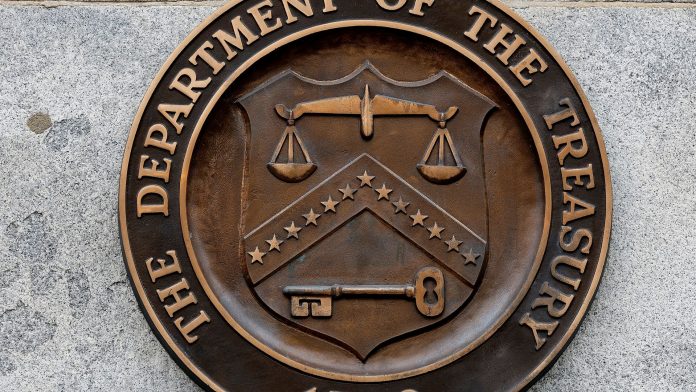The United States Treasury Department imposed sanctions on six individuals tied to Tren de Aragua on Thursday, July 17, including the group’s leader, Hector Rusthenford Guerrero Flores. Guerrero is accused of transforming Tren de Aragua from a prison-based gang in Venezuela into a transnational criminal organization with a growing presence throughout the Western Hemisphere.
Treasury Department sanctions Tren de Aragua head, leaders
According to the Treasury Department, the gang is involved in human smuggling and trafficking, drug trafficking, extortion and other serious crimes, including the sexual exploitation of women and children.
“Today’s action highlights the critical role of leaders like Niño Guerrero and his lieutenants in Tren de Aragua’s efforts to increase its destabilizing influence throughout the region,” Treasury Secretary Scott Bessent said.
The State Department designated Tren de Aragua as a terrorist group on Feb. 20. Being designated as a foreign terrorist organization carries consequences. It cuts off access to the U.S. financial system, blocks assets within U.S. jurisdiction and bars Americans and U.S. companies from doing business with those named.
Venezuelan government says Tren de Aragua is extinct
The Trump administration has focused on removing individuals linked to international criminal organizations, including Venezuela’s Tren de Aragua gang. Officials invoked a wartime law to fast-track deportations of suspected members.
In March, Venezuela’s Interior Minister Diosdado Cabello disputed the United States’ claims, saying the hundreds transferred to a prison in El Salvador were not affiliated with Tren de Aragua.
The comments were made during a podcast in which Cabello said the gang was wiped out in 2023, and the claims by the Trump administration are nothing more than a massive lie fueled by political opposition.
What is the purpose of sanctions?
This is the third round of sanctions imposed by U.S. authorities since that designation, the first being on June 24 and again on July 11.
By designating these individuals, the U.S. Treasury effectively freezes any assets they hold in U.S. jurisdictions or under U.S. control. Any organization or business owned by one of these individuals is also frozen.
U.S. nationals and companies are barred from dealing with these individuals unless they have explicit authorization or fall under a legal exception. That includes sending or accepting funds, goods, services or any other form of financial transaction.
Anyone who breaks these rules, whether knowingly or not, can face hefty fines or criminal charges. Banks and service providers that handle transactions for sanctioned individuals risk serious consequences, and foreign institutions that support them may be cut off entirely from the U.S. financial system.
Who received sanctions?
Federal officials said Guerrero is known as “Niño Guerrero” and has been active for over two decades. The State Department is offering a $5 million reward for information leading to his arrest. Guerrero’s wife, Wendy Marbelys Rios Gomez, was named for her suspected role in laundering money tied to the organization.
Yohan Jose Romero, or “Johan Petrica,” one of Guerrero’s top lieutenants, also faces sanctions. He’s accused of running illegal mining operations in Venezuela and funneling weapons to the group. A $4 million reward is on the table for tips that lead to his capture.
Others sanctioned include Josue Angel Santana Pena, known as “Santanita,” who once helped run the gang from inside prison and is linked to violent crimes like murder and extortion. Wilmer Jose Perez Castillo, or “Wilmer Guayabal,” allegedly led a cell involved in drug trafficking and carried out killings on the gang’s behalf.
Felix Anner Castillo Rondon, or “Pure Arnel,” was also designated for leading the gang’s Chile-based cell, “Los Gallegos,” which U.S. officials said is responsible for human trafficking, drug smuggling and exploitation.

